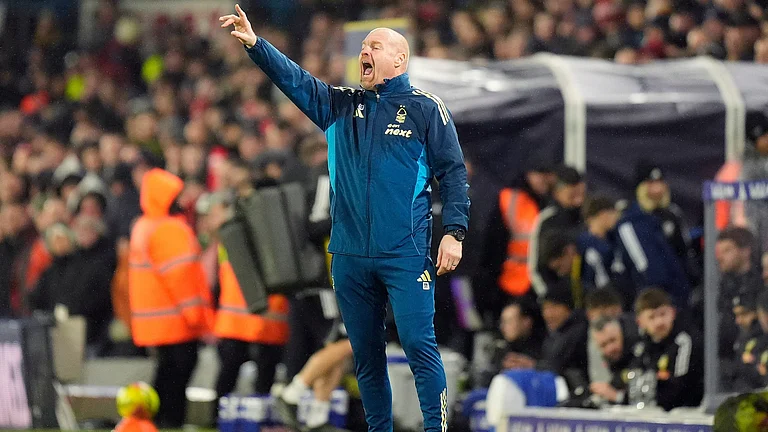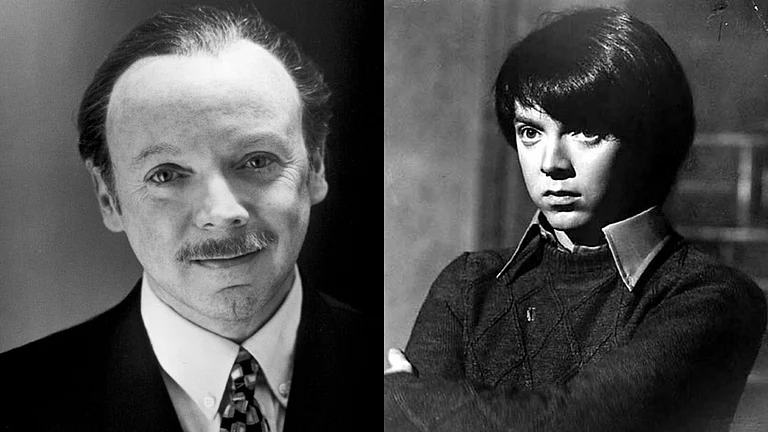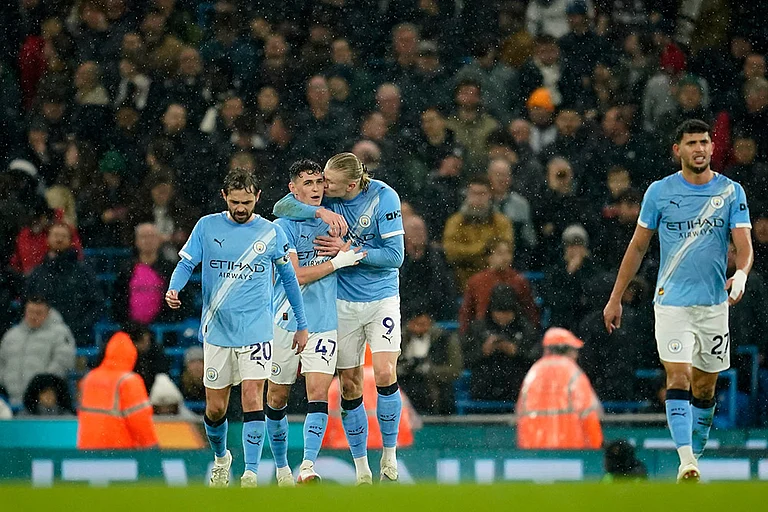Sheela Birnstiel may not ring a bell for many today but Ma Anand Sheela, as she was popularly known back then, conjures up images of a feisty but controversial woman who was in the middle of a storm of scandals at Bhagwan ‘Osho’ Rajneesh’s sprawling commune in the United States that he had set up after leaving his Pune ashram in the early 1980s.
As an all-powerful secretary to an equally controversial ‘guru of the riches’, she ran a multi-million empire at the City of Rajneeshpuram at Oregon, US, with gusto until she was accused of violation of laws and multiple crimes, including a bio-terror attack, allegedly for her vaulting personal ambitions. Later disowned by the very guru she was in love with, Sheela spent 39 months in jail in the US and was deported to Germany in 1988. Sheela then quietly shifted to Switzerland to set up care homes for the sick and elderly and lived a secluded life for many years.
A Netflix documentary Wild Wild Country (2018) on the Rajneeshpuram controversies brought her back into the global spotlight. Now, Netflix is set to air another documentary, Searching For Sheela on her. Produced by Karan Johar’s Dharmatic Entertainment, this Netflix original docu-film traces her journey through India, including a visit to Vadodara in 2019, about 35 years after she left her hometown where she was born as Sheela Ambalal Patel.
In a freewheeling interview with Giridhar Jha, she talks about her relationship with her guru and reveals, among other things, why she choose never to return to him despite being in love with him. Edited excerpts:
What took you so long to return to your roots in India? You could have returned home right after you were released from prison in 1988...
My legal situation was still not stable at the time. Plus, I had to earn money. I had to get back on my feet before I could think of the luxury of returning to my hometown. You cannot just come. I had to work on myself before taking another adventure on my hand. Also, my family was very much affected. They did not want me to travel to India. They felt that my life was in danger in the country.
You visited your hometown Vadodara during your India trip?
I was remembering the time that I had spent with my parents as a child. And what a lovely childhood I had! At the same time, I was highly disappointed because Baroda (Vadodara) was a beautiful city, as I remember, with lots of greens and trees around. Even my parents’ place had many trees and a beautiful garden. It was no longer there anymore. Now, you see a concrete jungle almost everywhere. I saw a lot of dumping grounds around places which should have been really beautiful. So I experienced both of these feelings.
Did you meet relatives, old family friends, neighbours…? Did they also pre-judge you like the rest of the world due to the controversies surrounding you over your Rajneeshpuram days?
I did not meet any relatives because I have no contact with them in Baroda. But when I was walking through the neighbourhood, they all greeted me with so much love and respect.
How different is this documentary on your homecoming from Netflix’s Wild Wild Country?
I don’t know. As far as I am concerned I have given out the same feelings of mine as I have done it now. That is me. One thing I will say that suddenly, due to both films probably a lot of attention will be diverted to my journey. The rest of the journey of my life!
What was the overall response to your return to India after all these years? Were you happy or disappointed with people still judging you on the basis of the stories that they had heard about you in the past?
I did not come with expectations, so I was super surprised to see so much interest in me. And I do not judge negative or positive interest, just interest in me. And that was remarkable.
For many years people had no idea about your whereabouts and there were all kinds of speculations doing the rounds about you. You were singularly blamed for all the Rajneeshpuram mess. Did Wild Wild Country bring about any change in the people’s perception of you?
This question is for the audiences and the people who have opinions about me. For me, I was living a very ‘opinionless’ life, creating my projects in Switzerland. The world did not know about the fact that I was living in Switzerland. But I had been living in complete openness in Switzerland. If somebody had contacted me, I was always ready to meet them, offer an interview, or whatever they needed. I have never hidden myself.
You also visited the place where Osho was cremated in Pune during your India visit. Did you ever try to reach out to him to sort things out with him or explain your position once he returned to India from the US? You were, after all, released from the US prison two years before he passed away?
No. I have learned to move on and burn the bridge behind. So I did not look back. There was nothing more to explain. I had already explained to him before I left and I had done that in writing also. Therefore, there was nothing more to say. He had his position and I had my position. I did not see my biggest strength, love, as my weakness and he felt ‘the way she loves me, Sheela would never leave me!’ But I saw no reason for it. Of course, Bhagwan had spoken in a public discourse that Sheela can get back any time, she will get her position back and there was no dispute about any situation between us. He had spoken in this sense. But that was not my problem. I was not there because I wanted or loved the position or the work that I was doing. I was there because I loved him and that love was very precious. I was not ready for compromise at that point.


A young Ma Anand Sheela with Rajneesh in the US.
Nothing from his side either… no messages, no feelers sent to you to come back?
He spoke a number of times in his discourses but it did not matter anymore because it was time for me to go on my own journey.
You were so much in love with him and also believed that he loved you. But from the public platforms, he disowned you saying whatever you did in the US, you did on your own. Did it not ever make you angry or disappointed with him?
I must say that a person who loved me so much was disappointed that I left. That caused him anger and also caused him to say nasty things about me. But it was his problem, not my problem. For me, I still love him and I still honour him, respect him. It shows the quality of my love.
Do you think it was all between the two individuals or was there something more to it? The Rajneesh commune had grown to be a huge empire. Could anyone around him in his inner circle have poisoned Bhagwan Rajneesh’s ears about you or was he his own man to take all his decisions?
I was in an enviable position and there were many sanyasins who were probably happy not to have me there. But my issue was between him and me and this issue was that I had the responsibility to protect him, his teachings, and his commune. The people around him who were experimenting with him with drugs did not. It was a bad idea, a very bad idea because the US government was looking for a way to shut us down. To protect him, I went to him and said, ‘Bhagwan, this is a sure way for stopping us from this project’ and he said, ‘you don’t interfere’. I could not do my job, what he had assigned me because he told me not to interfere. Then, it was time for me to leave and that is why I left. Whether the world accepts or believes it, it does not matter.
You apparently explored many places in India before settling for Oregon as the new base of Bhagwan Rajneesh. But whatever happened there, later on, did a thought ever cross your mind that it was no different from any other conservative place?
At the age of 72, I can say to you that I was naïve then to think that the US Constitution was sacred. But you learn from experience. Again, I would not recommend Bhagwan, ‘let us go to the US’.
Do you think it was a mistake to go to the US?
No, in those days my naivete had a reason for it. The democracy was functioning but you know from the 2020 American elections how good democracy is functioning there. These were the same Republicans who objected to our project, who made us the platform for their political event. Whether you want it or not, this is how politicians function.
How come did you not get a suitable location back home in India to set up a Rajneesh commune, bigger than the one in Pune? Is it because he was viewed as an anti-establishment guru of sorts because of his views? The conservatives were also angry over some reported activities at the Pune ashram...
Well, it was a political emergency in India. We had looked for a property for a number of years but nothing was allowed. That was the reality.
You have been doing philanthropic work running care homes in Switzerland. Any plans to undertake a similar mission in India in the future?
I would love to do it. If I am offered an opportunity to do it, I will do it.
May I ask one hypothetical question to conclude? Had Rajneeshpuram been allowed to flourish in the US the way you had visualised it, how would it have looked like three-and-a-half decades later now?
I don’t know. I am a very practical woman and I live day to day in practicality, not in fantasy.


























